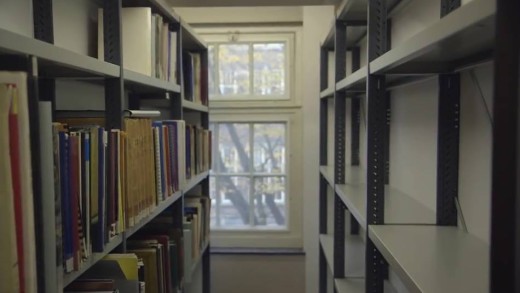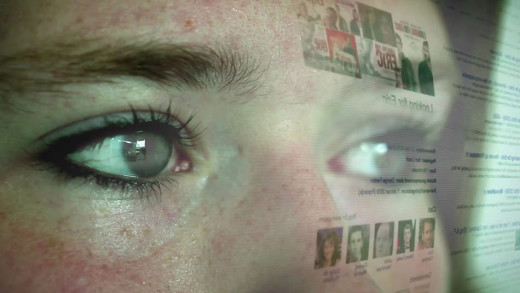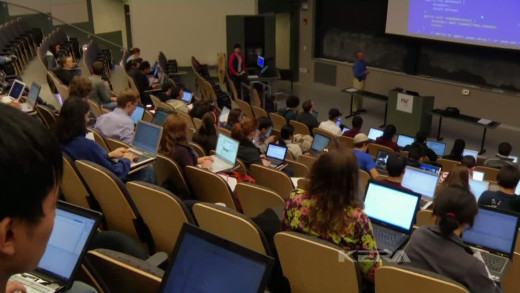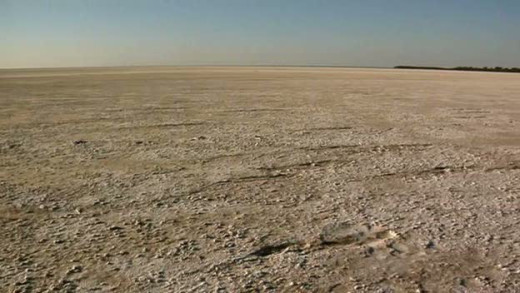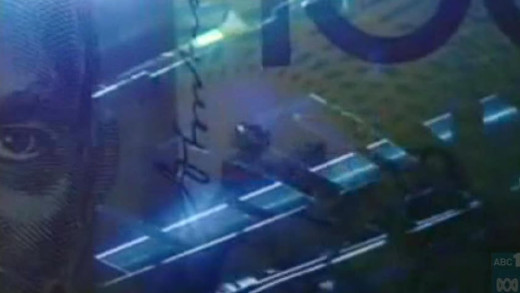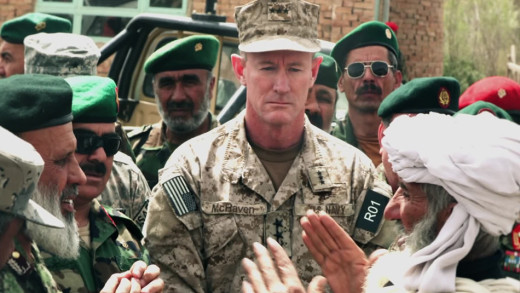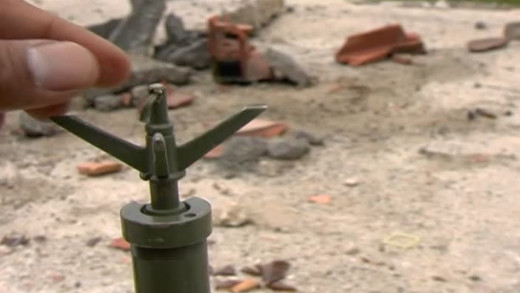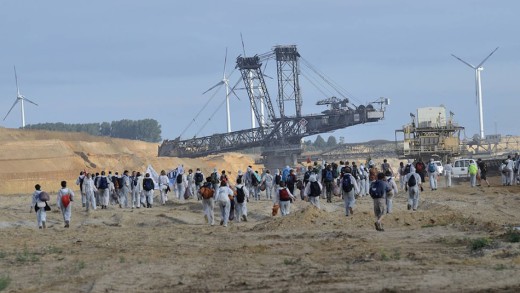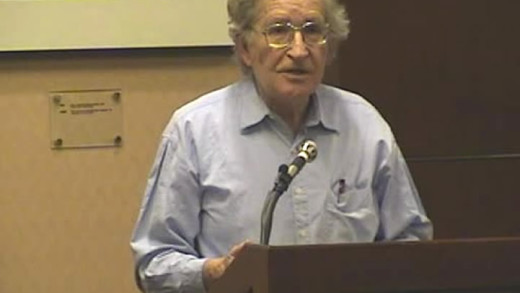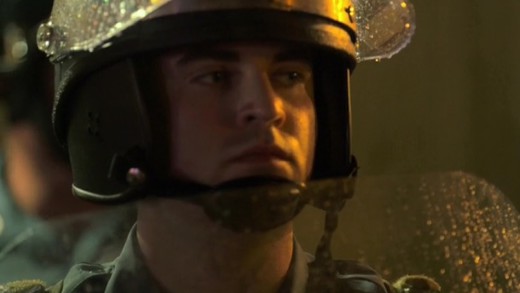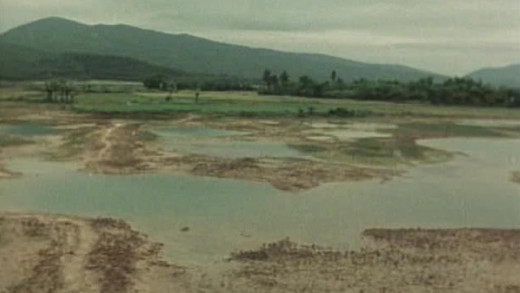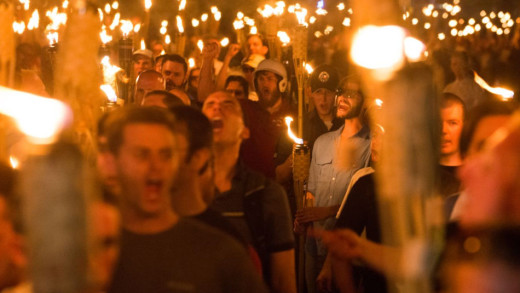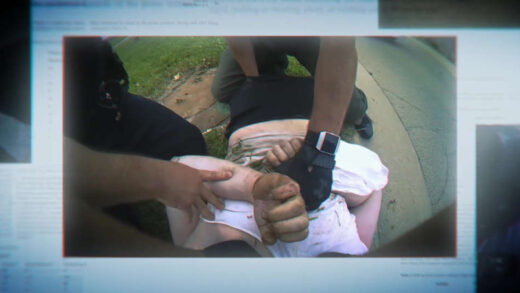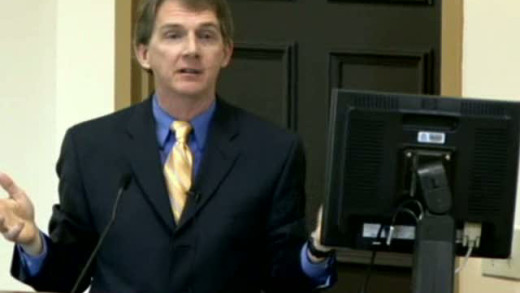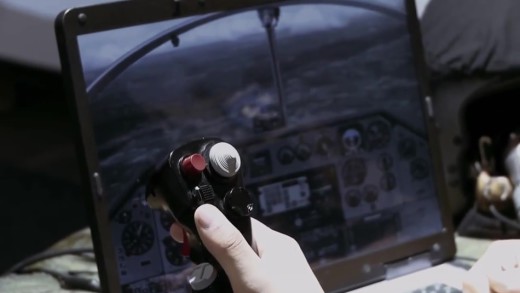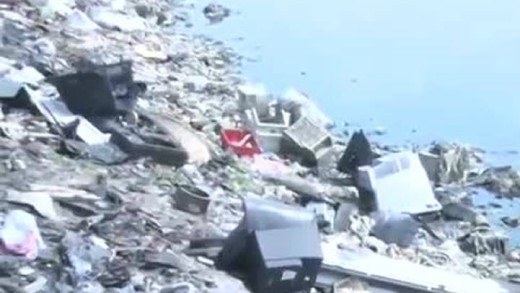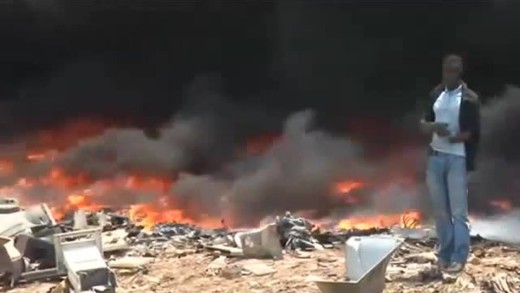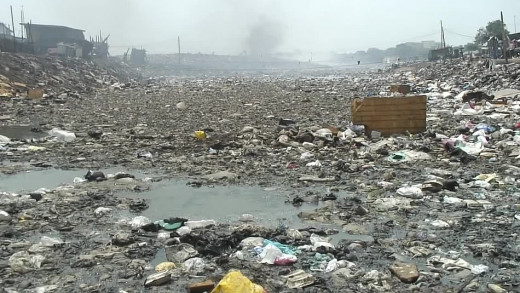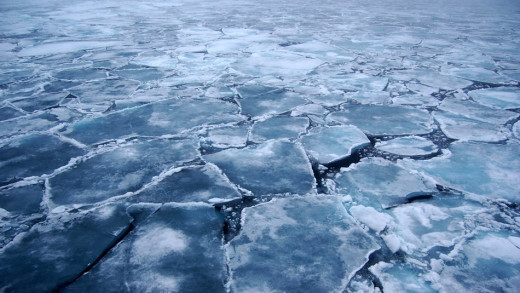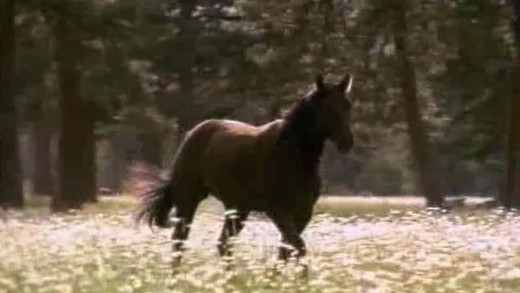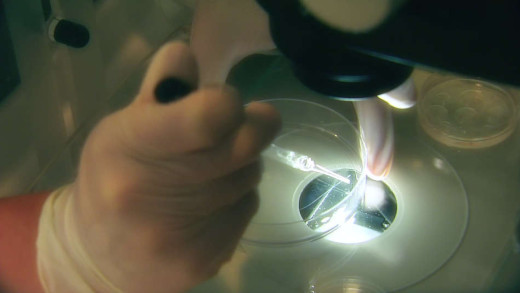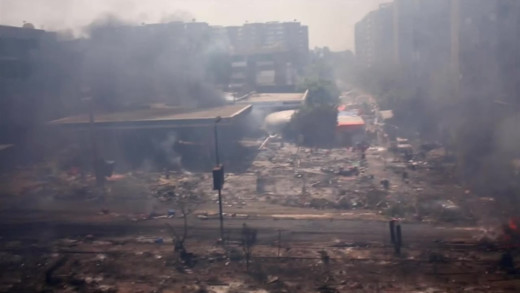Diamond Empire is a two-part series that investigates how an advertising slogan invented by Madison Avenue executives in 1948 has come to define some of the most intimate and romantic rituals and ideals of this culture. The films take apart the myth that "diamonds are forever," exposing how one white South African family, through a process of monopoly and fantasy, managed to exert control over the global flow of diamonds and change the very way this culture projects the notion of courtship, marriage, and love--an achievement all the more stunning given that diamonds are in fact neither scarce nor imperishable. Zeroing in on how the diamond empire managed to convert something valueless into one of the most coveted commodities in history, these films provide a vigorous investigation into how marketing and consumer culture shape not only global trade and economics, but also our very identities.
With the pervasive screen environment, our memory is dissipating. Hard drives only last five years; webpages are forever changing in the way of the Ministry of Truth; and there's no machine left that reads 15-year old floppy disks. Digital data is vulnerable. Yet entire libraries of books and other physical artifacts of information and culture are being lost due to budget cuts, or even the shifting assumption that everything can be found online, and can always be in the digital realm. How is this untrue? For the first time in history, we have the technological means to save great swathes of data about our past, yet it seems to be going up in smoke already. Will we suffer from collective amnesia in the age of decline?
Tracing the Internet's history as a publicly-funded government project in the 1960s, to its full-scale commercialisation today, Digital Disconnect shows how the Internet's so-called "democratising potential" has been radically compromised by the logic of capitalism, and the unaccountable power of a handful of telecom and tech monopolies. Based on the acclaimed book by media scholar Robert McChesney, the film examines the ongoing attack on the concept of net neutrality by telecom monopolies such as Comcast and Verizon, explores how internet giants like Facebook and Google have amassed huge profits by surreptitiously collecting our personal data and selling it to advertisers, and shows how these monopolies have routinely colluded with the national security state to advance covert mass surveillance programs. We also see how the rise of social media as a leading information source is working to isolate people into ideological information bubbles and elevate propaganda at the expense of real journalism. But while most debates about the Internet focus on issues like the personal impact of Internet-addiction or the rampant data-mining practices of companies like Facebook, Digital Disconnect digs deeper to show how capitalism itself turns the Internet against democracy. The result is an indispensable resource for helping viewers make sense of a technological revolution that has radically transformed virtually aspect of human communication.
Within a single generation, digital media, the Internet and the World Wide Web have transformed virtually every aspect of modern culture, from the way we learn and work to the ways in which we socialise and even conduct war. But is technology moving faster than we can adapt to it? Is our constantly-wired-world causing us to lose as much as we’ve apparently gained? In Digital Nation, Douglas Rushkoff and Rachel Dretzin explore what it means to be human in a 21st-century digital world...
Made from the same elements as stars, plants, food and human beings, dirt is very much alive and very much just as complex. One teaspoon of dirt contains a billion organisms working in balance to sustain a series of thriving communities that have become pretty much totally invisible to our daily lives. Dirt -- The Movie tells the story of Earth's most valuable and underappreciated source of fertility, from its miraculous beginning to its tragic degradation...
On 20th April 2010, the Deepwater Horizon oil rig exploded off the Gulf of Mexico in the United States, killing eleven workers, and spewing millions of barrels of oil into the ocean for weeks. Dirty Energy brings to light the personal stories of the Louisiana fishermen and local residents directly impacted by one of the worst environmental disasters in recent history, as they struggle to rebuild their lives and contend with emerging health crises related to the toxic dispersants used to clean up the explosion.
In the late 1990s, the Reserve Bank of Australia thought it was on a winner. The bank had developed the technology to create polymer bank notes that it claimed rivalled paper money. So the Reserve Bank decided to set up a subsidiary company called Securency to sell the technology to the world. It had just one problem though—getting legitimate access to other central bank officials to pitch the idea. So instead, Securency decided to employ a shadow network of local "fixer agents" to make "connections" with relevant officials, lavishing them with prostitutes, cash, and bribing them into deals. Dirty Money is the story of this institutional corruption at the highest level of finance in Australia.
Dirty Oil looks into the strip-mined regions of Alberta, Canada, where the vast and toxic Tar Sands currently supply the United States with the majority of its oil. Through the eyes of corporate officials, politicians, scientists, doctors, environmentalists and communities directly impacted by the largest industrial project on the planet today, Dirty Oil travels to both sides of Canada to document the irreversible toll the tar sands take, further fuelled by the western world's addiction to oil...
Dirty Wars follows investigative reporter Jeremy Scahill into the hidden world of the United States' covert wars and assassination programmes—from Afghanistan to Yemen, Somalia, and beyond. What begins as a relatively commonplace report on the cover-up of a murderous US night raid in a remote corner of Afghanistan, quickly turns into a global investigation of the secretive and powerful Joint Special Operations Command (JSOC)—a top secret arm of the Military-Industrial-Intelligence Complex. As Scahill digs deeper into the activities of JSOC, he is compelled to report on the growing chilling underworld of covert operations carried out across the globe at the behest of the United States government: Targeted killings of American citizens; secret drone strikes; outsourcing American kill lists to warlords, private corporations and paramilitaries. The list goes on. Dirty Wars is a sobering investigation and personal journey into the most important human rights story of our time.
Disarm travels a dozen countries to look at how—despite a global ban—millions of anti-personnel landmines continue to be used to claim victims daily in more than eighty countries. The forces challenging the achievement of a landmine-free world are predictable. As such, the film mixes the views of diplomats and governments against that of victims, de-miners, soldiers, campaigners and aid workers to explore the issues that both hinder and further the case against the use of landmines across the world.
Disobedience glances a new phase of civil disobedience movements to stop climate change by profiling some actions that are being taken throughout the world, led by regular people. Civil disobedience and direct action are at the centre of stopping the rich and powerful from destroying the planet—we actually have to stop them. Disobedience shows that profound shifts are required to deal with the climate crisis. The calling on how to act is up to you.
The hypocrisy of the United States government is scrutinized in Distorted Morality—a scathing thesis against war and the invasion of Iraq, presented by renowned scholar Noam Chomsky in 2002. Chomsky sets fair and logical parameters to test his ideas, before outlining the reasons why the United States post-9/11 "war on terror" is a logical absurdity. This, according to Chomsky's carefully supported analysis, is because the US government has been, and continues to be, a major supporter of state-supported terrorism; favoring retaliatory or preemptive aggression over mediation in the world court, and avoiding accountability by excluding itself from the globally accepted definition of terrorism. Explored also are numerous historical examples to support.
Do Not Resist documents, from the perspective of the police, their view of the social unrest following the shooting and killing of Michael Brown by police in Ferguson, 2014, against a backdrop of the routine and escalating use of military tactics and high-powered weaponry by local police forces throughout the United States in the past two decades. Military equipment deployed throughout the Middle East returns home to be used against the citizenry. Local police recruitment and training is awash in military commandments backed by views of escalating 'righteous' violence and sadism. Meanwhile curfews are imposed, along with frivolous drug raids and incessant racial profiling. The voices of concerned citizens ignored. What is the cultural and technological trajectory here?
In 1978, three years after the end of the Vietnam War, film-maker John Pilger travels back to Vietnam to find out what had happened under the new regime. Do You Remember Vietnam? recounts numerous personal stories: talks with a young tour guide at a war crimes museum who had been imprisoned in the infamous US tiger cages; a former North Vietnamese soldier into the underground base where he spent 20 years crawling through tunnels undetected; and views from the streets in Hanoi, where the largest single aerial bombardment in history took place.
Investigate journalist A.C. Thompson reports on the background of the white supremacists and neo-Nazis involved in the "Unite the Right" rally in Charlottesville, 2017. The event itself was chaotic and violent, amidst a backdrop of general passivity by the police and supine intelligence agencies, peaking on the day with a self-identified white supremacist ramming his car into a crowd of protesters, killing a young woman, Heather Heyer, and injuring 19 other people. Documenting Hate contextualises the events of that day by looking at the renewed trajectory of fascism in the United States, and the kinds of people attracted to its place in modern times, while profiling some of the characters from Charlottesville that lurked in the background. The second part of the investigation deals with the wake of the deadly anti-Semitic attack at the Tree of Life synagogue in Pittsburgh, showing how a neo-Nazi group, Atomwaffen Division, has actively recruited inside the United States military.
Documenting Police Use of Force investigates deaths that occurred after police used tactics like 'prone restraint' (which is a method of restraining a person by placing them face down on the ground which can pose serious risks including difficulty breathing and psychological trauma), forced-sedation, and the use of weapons such as tasers, batons, and other physical violence such as punching, kicking, and pressure-holds. The film also investigates other so-called "less-lethal force" methods used on citizens during police encounters and arrests. The documentary and accompanying reporting draw on police records, autopsy reports and police body-camera footage, offering the most expansive tally of deaths in the United States.
Law Professor James Duane from the Regent Law School in Virginia Beach, Virginia; and Police Officer George Bruch from the Virginia Beach Police Department, both explain why even innocent people should never talk to the police or agree to answer questions from the police. Citing a trove of examples and even though pertaining to US law, this talk is particularly applicable for political activists the world over as Security Culture 101.
What stories do contemporary music videos tell about girls, women, boys, men, sexuality and gender? What are the cultural values portrayed? And from whose perspective? Dreamworlds encourages viewers to consider how these narratives shape individual and cultural attitudes about sexuality. Illustrated with hundreds of examples, the film accounts both the continuing influence of music videos and how popular culture generally filters the identities of young men and women through a narrow and dangerous set of myths about sexuality and gender; asking viewers to re-look at the images that have been normalised and meanings taken for granted throughout popular culture...
In the wake of the September 11th attacks, amongst the ravaging of war, the United States has been secretly deploying drones to carry out assassinations throughout the Middle East. The drones are increasingly piloted by the likes of young computer gamers groomed by screen culture and computer games of war, where in many cases, the Pentagon is directly involved in the creation of such games as recruitment tools, actively working to lure young people proficient with technology into the new era of the military-industrial-complex. Drone unravels this complex phenomenon while travelling to places such as Waziristan, where innocent civilians, including children and rescue workers are routinely secretly killed, where families and communities ravaged by the drone strikes search for understanding, accountability and adjustment to the daily horrors. The film also takes a look at the young people sitting behind the screens of the new war machines, half a world away, that actually pull the trigger, asking what kind of world is being built in the rise of seemingly endless and lucrative war driven by technological escalation.
Misogyny is rampant in this culture, and corporations capitalise on making women hate their bodies. Indeed all aspects of womanhood are commodified, hypersexualised, and squeezed into gender stereotypes. Being female comes at a cost. So it's no wonder that young people growing up can feel horrible about themselves and their bodies, and further feel confused about what it means to be a woman in today's world. Into this perfect storm steps queer theory, an ideology born in the 1990s, that tells people that all the confusing feelings they may experience about the world they live in can be fixed not by changing the world, but by changing themselves. The past decade has seen a steep rise in the number of young girls seeking to alter their bodies by undergoing life threatening, irreversible procedures. Dysphoric is a series that explores this concept of gender transition, told through the voices of clinicians, psychiatrists, sociologists, feminists, academics, detransitioners, and concerned citizens and parents. The series also discusses the permanent medical side-effects of hormones and surgeries, the propaganda of corporations that glorify thousands of stereotypical gender presentations coalesced as fashion, the surge in pronoun policing, censorship and the curtailment of speech, language hijacking that calls women "menstruators," and the many other hurdles women face while trying to question this modern-day misogyny.
e-Waste is a short film that investigates the grave effects that technological waste has on the environment in Ghana, and the impact it has on the lives of those who are forced to work with such hazardous materials in order to survive.
For years now, the global economy has been exporting most of its wastes and dirty industries to the so-called third world. With this era of proliferation of technology and planned obsolescence, it's no surprise that e-waste has taken over in these places too. Though while corporations claim that used TVs and computers are being safely recycled in Australia, the reality on the ground throughout Africa shows a very different story. This film travels to Ghana to see that a staggering amount of the world's e-waste is ending up being burnt in open dumps with severe consequences. The waste creates an escalating and accumulating environmental and health nightmare. But not only this, the arrival of the waste in the first place breaks a myriad of laws and conventions that are supposed to be in place. e-Waste Hell documents this stark reality...
Almost 50 million tonnes of electronic waste is generated worldwide, every year. A large volume of it is shipped off to Ghana, in West Africa, as "second-hand goods" where electronics are not seen for what they once where, but rather for what they've become. Without dialogue or narration, e-Wasteland presents a visual portrait of vast landscapes polluted by electronic waste, shining a light on the endless consumerism of the 1st world; and the real, pervasive, ecological impact of electronic waste worldwide.
Earth at Risk documents the first conference of the same name convened in 2011 by featured thinkers and activists who are willing to ask the hardest questions about the seriousness of the situation facing life on the planet today. Each speaker presents an impassioned critique of the dominant culture, together building an unassailable case that we need to deprive the rich of their ability to steal from the poor, and the powerful of their ability to destroy the planet. Each offers their ideas on what can be done to build a real resistance movement—one that can actually match the scale of the problem. To fight back and win. Literally, the whole world is at stake.
Humanity is absolutely dependent on animals as part of life. In industrial society however, this has extended to animals as pets, 'entertainment' and for expendable use in scientific research -- animals are tortured for 'scientific tests', locked in cages as pets and at the zoo and are bred on mass for cheap meat. What does this say about industrial civilisation? Earthlings conducts an in-depth study into pet stores, puppy mills and animals shelters, as well as factory farms, the leather and fur trades, sports and entertainment industries, and the medical and scientific profession, using hidden cameras to directly show the day-to-day practices of some of the largest industries in the world...
On April 20th 2010, a massive oil rig exploded in the Gulf of Mexico. It was called the Deepwater Horizon rig, operated by the BP corporation. The resulting fire claimed the lives of eleven workers, while the exploding oil well spewed over 4.2 million barrels of oil into the sea over 82 straight days, killing the ocean and millions of animals. The disaster is considered the worst environmental catastrophe in the history of the United States. Ecocide profiles the disaster through the residents of Grand Isle, the last inhabited barrier island off the coast of Louisiana, United States, who thought they were living in paradise until the BP oil explosion hit their shores. Through the lived experiences of this island community, we see the devastating repercussions of the explosion, several years later, that continue to this day.
The infertility industry in the United States has grown to a multi-billion dollar business, and its main commodity is human eggs. Young women all over the world are bombarded by advertising--on college campus bulletin boards, social media, online classifieds--offering up to $100,000 for their donated eggs, to "help make someone's dream come true." But who is this egg donor? Is she treated justly? What are the implications to her health? Eggsploitation spotlights the booming business of human-egg extraction told through the stories of women who became involved and whose lives have changed forever after undergoing the procedure. Their accounts provide a cautionary tale to all women who are considering egg donation for the purpose of in-vitro fertilisation or embryonic stem cell research.
Less than three years after a popular uprising that led to President Hosni Mubarak's ousting, and just one year after Egypt's first elections, the elected government has been overthrown and the Egyptian military is running the state. And the Muslim Brotherhood—the secretive, long-outlawed Islamist group that came out of the shadows to win the presidency in June 2012—is once again being 'driven underground.' Were the Brothers ever really in charge? Or was the Egyptian deep state—the embedded remnants of Mubarak's police force, Supreme Court and, most of all, military—in control all along? In Egypt in Crisis, we go inside the Egyptian revolution, tracing how what began as a youth movement to topple a dictator evolved into an opportunity for the Muslim Brotherhood to seemingly find the political foothold it had sought for decades—and then why it all fell apart. With Egypt's hopes for democracy in tatters, and the military-led government violently cracking down, what will happen next?

